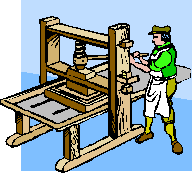Three Reasons To Support Self-Publishing
Yesterday Stephen offered three criticisms — let’s call them cautions — of self-publishing.
I’m grateful he asked me to rebut his article, but I’m also not sure how much rebuttal is actually needed. His cautions are well taken:
- That self-publishing not be done for selfish or prideful reasons
- That it shouldn’t be done totally alone, and
- Christian self-publishers ought to strive to out-quality the big guys.
Amen to that, says I.
All I will say is that Stephen seems to assume that self-publishing must be done by oneself. There are plenty of people in the Body of Christ who could offer their editing and design talents to Christian self-publishers and improve the whole field by doing so.
What I will offer are three reasons why Christians ought to support self-publishing, both as writers but also as readers. And since readers are not the primary addressees of this column, my suggestion to you is to support your brothers and sisters in the Body. Buy their books, electronic or otherwise. Read them. If they are good, spread the word. If not, be charitable but honest.
1. The Abuses of Industry
 This first and most important reason goes like this: Before 1970, book publishers were fairly small affairs, interested in writers and in publishing work that would challenge. Work that was slightly different, or that would contribute to culture even if they wouldn’t sell a ton of copies. The industry was focused on finding new and interesting work, and it understood the importance of writers.
This first and most important reason goes like this: Before 1970, book publishers were fairly small affairs, interested in writers and in publishing work that would challenge. Work that was slightly different, or that would contribute to culture even if they wouldn’t sell a ton of copies. The industry was focused on finding new and interesting work, and it understood the importance of writers.
Then major corporations began buying up publishers and consolidating them. Today, all publishers (as with all media outlets) are owned by five multinational corporations.
This is not to rail against the evils of corporations. It is rather to note the historical changes in the book industry of the last forty years. Once upon a time (before 1970), publishers and agents existed to facilitate an exchange between readers and writers. The writer was the focus, the reader the goal.
Now more and more it seems that editors and agents are getting in the way of this process instead of helping it along. Forced to comply with a corporate bottom line, publishers are not picking up new and unique stories; instead, they tend to publish what they think are most likely to sell. They focus on books they think will be blockbusters; the rest get little promotion or attention. (Sometimes cover and copy designers haven’t even read the book when they work on it. Sometimes your editor is the only person at the publisher who will ever read more than a few pages.)
2. Indie Publishing is Thriving
Dean Wesley Smith ran the fifth largest publisher of science fiction and fantasy for several years and has been a published author for over 20 years, with over a hundred novels published. In his book Think Like a Publisher, he points out that “before 1950 or so, self-publishing was an accepted form of publishing. Only from 1950 to 2008 was it looked down upon.”
James Patterson is convinced the publishing sky is falling, but a look at the numbers shows quite the opposite. 2012 was called the “Year of the Bookstore,” and it was so named because independent bookstores (those local stores not owned by Barnes and Noble, etc.) have been growing and expanding, a number of new ones opening their doors last year alone.
Just this year the major catalog from which bookstores order their books changed their catalog organization so that self-published books are eligible for the same discounts as, and appear side-by-side with, industry publishers. Before this, self-published books were segregated in their own catalog. That is, the last major obstacle to getting indie books into bookstores has just been removed.
Unless your book covers and blurbs look particularly amaturish to raise red flags, bookstores can no longer tell the difference. They will simply order what looks interesting, and what is selling well, regardless of where it came from.
3. Self-Publishing Gets Around the Gatekeepers
 Assuming a novel is good enough to be published (a good rule of thumb is that you are not ready to produce professional-level fiction before you have written a million words), assuming that you have a small amount of business sense and can get professional-looking covers done, self-publishing is a tremendous opportunity for the rebirth of fiction — Christian and otherwise.
Assuming a novel is good enough to be published (a good rule of thumb is that you are not ready to produce professional-level fiction before you have written a million words), assuming that you have a small amount of business sense and can get professional-looking covers done, self-publishing is a tremendous opportunity for the rebirth of fiction — Christian and otherwise.
It is a good chance to escape the fetters of story restrictions of all sorts, whether the pernicious “Christian” triad of Niceness, Niceness, and Niceness, or simply the opportunity to take a chance on a strange concept, a new plot structure, an odd story that wouldn’t fit within the narrow parameters of mainstream publishing.
The great thing about this new world of publishing is that everyone has a chance to test the market, and to know that eventually a book will sink or swim on its own qualities. And if those qualities are good (I dare not say perfect), readers will find it.









































Agree. This is an exciting time for writers and readers who are fed up with a hidebound and top-heavy conventional publishing system. Self-publishing puts power back in the hands of producers and consumers. It also enables a lot of yahoos to publish a lot of random trash, but the market will have a chance to regulate itself.
Giving work to freelancers — designers, typesetters, editors, etc. — is definitely a great benefit from self-publishing. Not every good novel has a chance to get published from a corporate publisher, and not every capable designer or editor has the chance to get a job with any corporation. There’s just too much competition.
With self-publishing and freelancers selling micro-services, at least everyone can have the satisfaction of using their skills for real purposes. Let’s face it — money is necessary for a sense of self-satisfaction from work. Even if you can’t make a living from your skills, if you only ever do stuff for free, you won’t feel satisfied. Getting paid even a token amount for honest work is a great blessing, not necessarily for the money, but for the sense of worth as a worker. Everyone deserves to take pride in their own labors; I think that is a Christian principle.
I’d add:
1)One may also shun “vanity” publishing for vain, prideful reasons. I did, after all.
2) A “traditional” publisher may tempt you into writing to please man and the bottom line rather than writing to please God. That’s as spiritually bad as writing alone because you’re writing apart from God’s will. (Your own bottom line as a indie publisher can tempt you like this, too.)
3) Christians are to strive to do their best work in the sight of God, but we’re ill-advised to compare ourselves to one another and try to be better than one another. That’s also driven by pride.
That’s a great point. “I’m too good for self-publishing; my work deserves a wider audience and better-financed marketing, plus large bookstore displays, a book tour, and commercials on conservative talk radio and interviews on Christian TV. …”
Good stuff, A.T. Publishers are simply not the protectors of excellence and accountability that Stephen was arguing for. BTW, I am not ashamed to give as one of my main reasons for self-publishing is to eat and provide for my family. I make money at it, while I didn’t make money trying to go traditional. Pretty logical and moral to me.
Thanks for the replies, everyone!
Brandi, I think we are seeing some course correction in the self-published industry now too, as you mentioned. Writers who go this route are slowly starting to discover that they can’t just slap a cover on their book that took fifteen minutes to do. The push to produce professional quality is beginning to take over.
Brian, thanks. Yes, just because a book was published by a traditional publisher doesn’t guarantee their quality at all. Going the indie route is not only becoming more respectable again, but you might be able to support yourself (I’m hoping for this myself also.)
Ahh, but you didn’t call this three SCRIPTURAL reasons to support self publishing. Where are the Bible verses that are pro self-publishing? (Stephen seemed to find all kinds that are against it.)
Also, equating publishing with church attendance is the real kicker. Since, you know, publishing is a BUSINESS and church attendance isn’t.
Well, I had a hand in the title, mainly to help it match yesterday’s column. A.T.’s posish here is more practical, based on industry realities. Most of my cautions were based on warnings against any kind of publication endeavor — but particular ones that could be enhanced by traits unique to the self-publication process.
For example, you won’t find many truly bad covers from traditional publishers. But you’ll find slickly dressed, “quality” corpses under the white-washed sepulchres.
I agree with Kessie.
Although hearing A.T.’s industry-centric take on the subject is great, I would love to hear (for instance) Brian Godawa guest post and expound on some of the scriptural reasons FOR self-publishing.
Some of those reasons go hand-in-hand with what A.T. is talking about here and some of them directly flip your original post’s assertions on their head (like the flip side of a coin). For example:
– Scripture talks about the benefits of diligent, honest labor. And about providing for our families. With self-publishing, there is more opportunity than before for a good, diligent writer to make a living with their talents.
– Scripture lifts up truth and excellence. Misguided gatekeepers in the current industry often block excellent fiction and non-fiction from being published because they do not consider it mainstream enough to make a profit. Self-publishing allows the message (or stories) to go out without compromise for profit’s sake.
– Scripture extols the virtues of the Body of Christ each doing their part, working together with varieties of gifts to see the Kingdom expand. Self-publishing allows the freedom to gather fellow Christians into like-minded teams where each person can do what they are gifted and skilled at doing towards a shared God-honoring goal (whether that is publishing non-fiction teaching materials or speculative fiction with a Christian worldview).
I love how this website is actually a good example of that last item. The team here is doing a great job raising awareness and encouraging participation and fellowship among Christians of shared interests and values. Keep up the good work!
A. T. Thanks for you reply.
Agreed, A.T. Last week I meant to say this, but after my try at Scriptural cautions against self-publishing the other day, I greatly appreciate your reminders about the positives of self-publishing and its ability to reach new readers with new stories — especially the kinds of stories that make traditional publishers skittish!